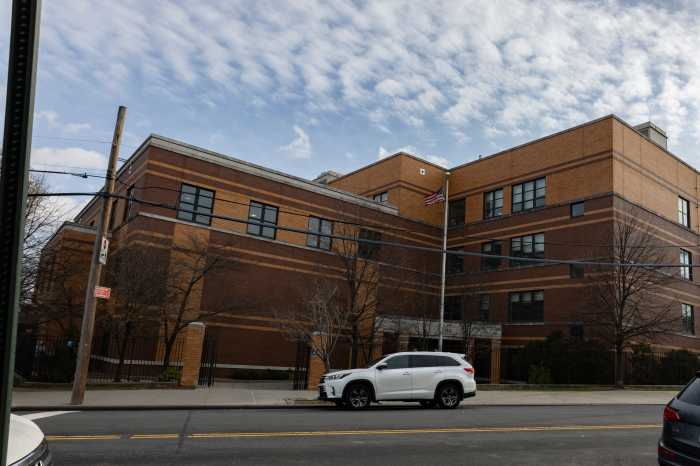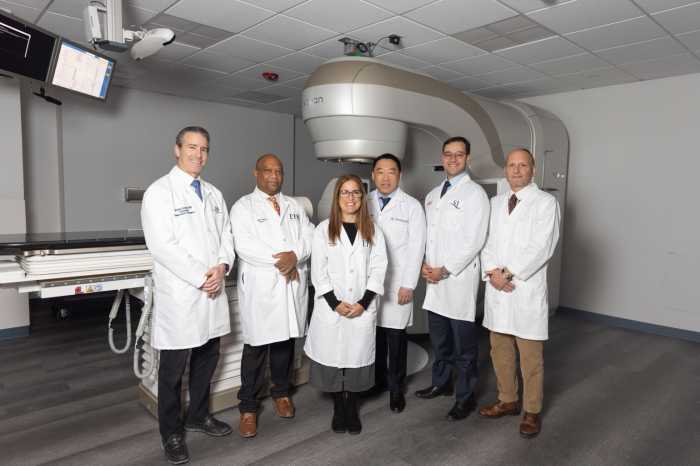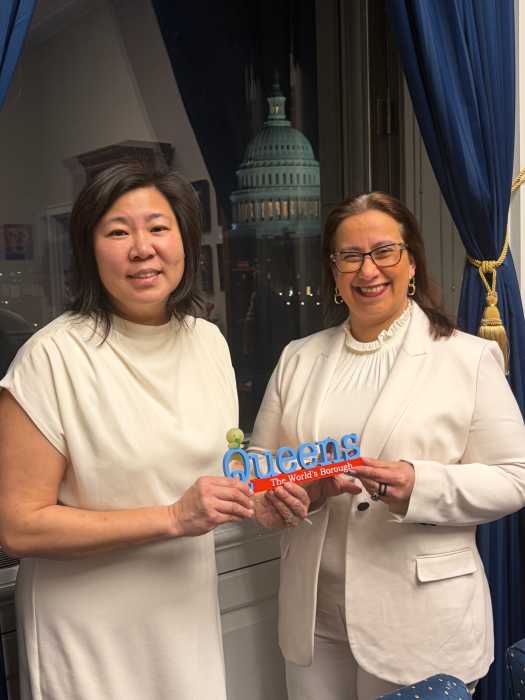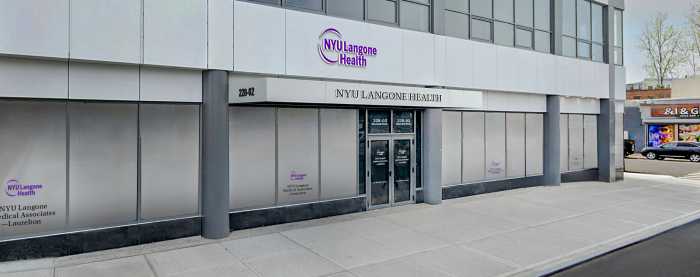A Great Neck gastroenterologist is going the distance to raise awareness and funding for celiac disease, an often-misdiagnosed digestive disorder. Dr. David Milkes may not be an Olympic swimmer, but he received a medal for completing the Alcatraz Challenge, a demanding 1.5-mile open water swim from Alcatraz Island to the shores of San Francisco.
The race was a personal challenge for Dr. Milkes, who trained for a year before diving into the icy cold waters of San Francisco Bay. The event attracts hundreds of swimmers annually, most donning wet suits to protect themselves from the frigid waters. Strong currents, thrashing waves and limited visibility present further challenges to swimmers.
Today Alcatraz Island is a historic site operated by the National Park Service. It is perhaps best known for its infamous prison, and the film, “Escape from Alcatraz.” Until it was closed in 1963, the maximum-security facility housed some of nation's most notorious criminals, including Al Capone and George “Machine Gun” Kelly.
Dr. Milkes undertook the challenge from the famous site to help patients - including his sister, Sharon - escape the severe symptoms of undiagnosed celiac disease. People who have the condition cannot tolerate a protein called gluten, found mainly in wheat, rye and barley. Celiac disease damages the small intestine and interferes with the absorption of nutrients. It can lead to malnutrition and a host of other symptoms, including abdominal pain and bloating, diarrhea, constipation, extreme hunger, weight loss or weight gain, fatigue, anemia, joint or muscle pain, osteoporosis, an itchy skin rash, even seizures. The condition affects each patient differently, and many of the symptoms mimic other diseases. In addition to the physical signs of celiac disease, some patients experience depression and irritability.
Dr. Milkes, originally from California, couldn't be sure exactly what to expect the day of the event. Would he be in calm or troubled waters? He was a pretty good swimmer, but the open water challenge meant he would be up against the elements. His busy work schedule meant training in his neighborhood pool from 11 PM to midnight several days a week. “I was a bit apprehensive, but it was important for me to accomplish this as both a personal challenge and to raise awareness of celiac disease.”
Dr. Milkes also has a more personal interest in the condition. In addition to his patients, his sister, Sharon, 36, had severe symptoms that went undiagnosed for three years. Living in California, she went to three doctors who could not find the cause of her nausea, vomiting, terrible joint and muscle pain, constant hunger and severe fatigue. “It interfered with my life. You reach a point where your body can't take it anymore,” she says.
Dr. Milkes recommended she come to New York, where one of his colleagues at North Shore Gastroenterology Associates, Dr. Chaim Abittan, diagnosed her with the condition. It was confirmed by Dr. Peter Green, who directs the Celiac Disease Center at Columbia University Medical Center in Manhattan.
“Had my brother not been in the field, I might still be undiagnosed,” she says. “I never thought I'd have a problem related to food. Nobody in my family has a food allergy.”
Sharon, along with the Milkes' parents, traveled from their home in southern California to San Francisco to cheer him on at the Alcatraz Challenge. He completed the event in just over an hour, and it went swimmingly. There was little wind that day, and the waters were calm. The only scary moment was when a jelly fish the size of a wall clock hit him in the face. “Although I was startled, I knew these jelly fish didn't sting, so I didn't panic. Being prepared and having trained properly really helped,” he says. “I'm really glad I did it. It was exhilarating, an example of how when you set your mind to accomplish something, you can do it.”
“I thought it was wonderful that he decided to undertake the challenge to raise awareness of celiac disease,” says Norman Milkes, Dr. Milkes' father. “We are very proud of him.” Sharon Milkes agrees. “It was heartwarming that he wanted to do it, and it was a terrific feeling to see him in the water. It's a grueling swim, so it was quite an accomplishment.”
Before the race, Dr. Milkes sent a letter to family, friends and colleagues requesting they make a donation to the Celiac Disease Center at Columbia University, where he had completed part of his medical training. So far, Dr. Milkes has raised more than $5,000 in donations.
Meanwhile, his sister has experienced a dramatic improvement in her health. “Having been on a gluten-free diet, Sharon has made an amazing recovery,” Dr. Milkes says. “However, she still faces the daily struggles of dealing with such a diet, which include confusing food labels and the need to order gluten-free foods at restaurants.”
More information about celiac disease is available at www.csaceliacs.org or www.nyceliac.com. Anyone who would like to make a donation to the Celiac Disease Center can visit https://giving.columbia.edu/giveonline, select Celiac Disease Center, and under “Comments”, write “Dr. David Milkes Alcatraz Challenge.”


































